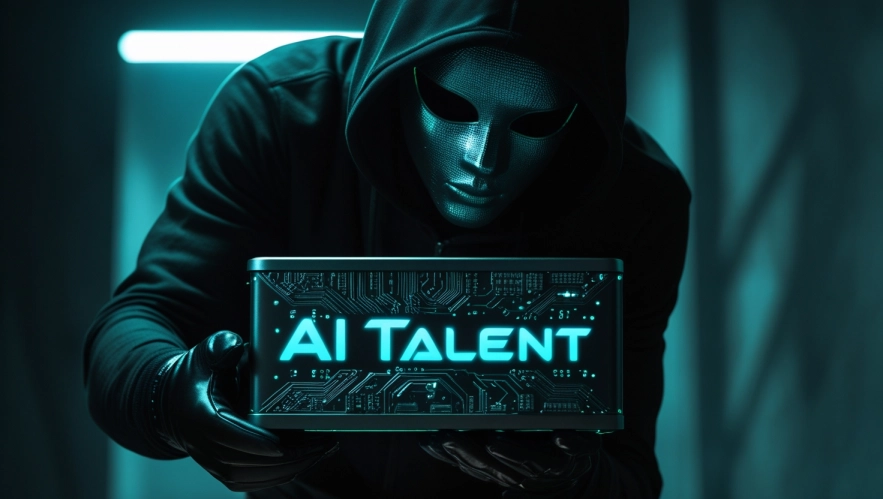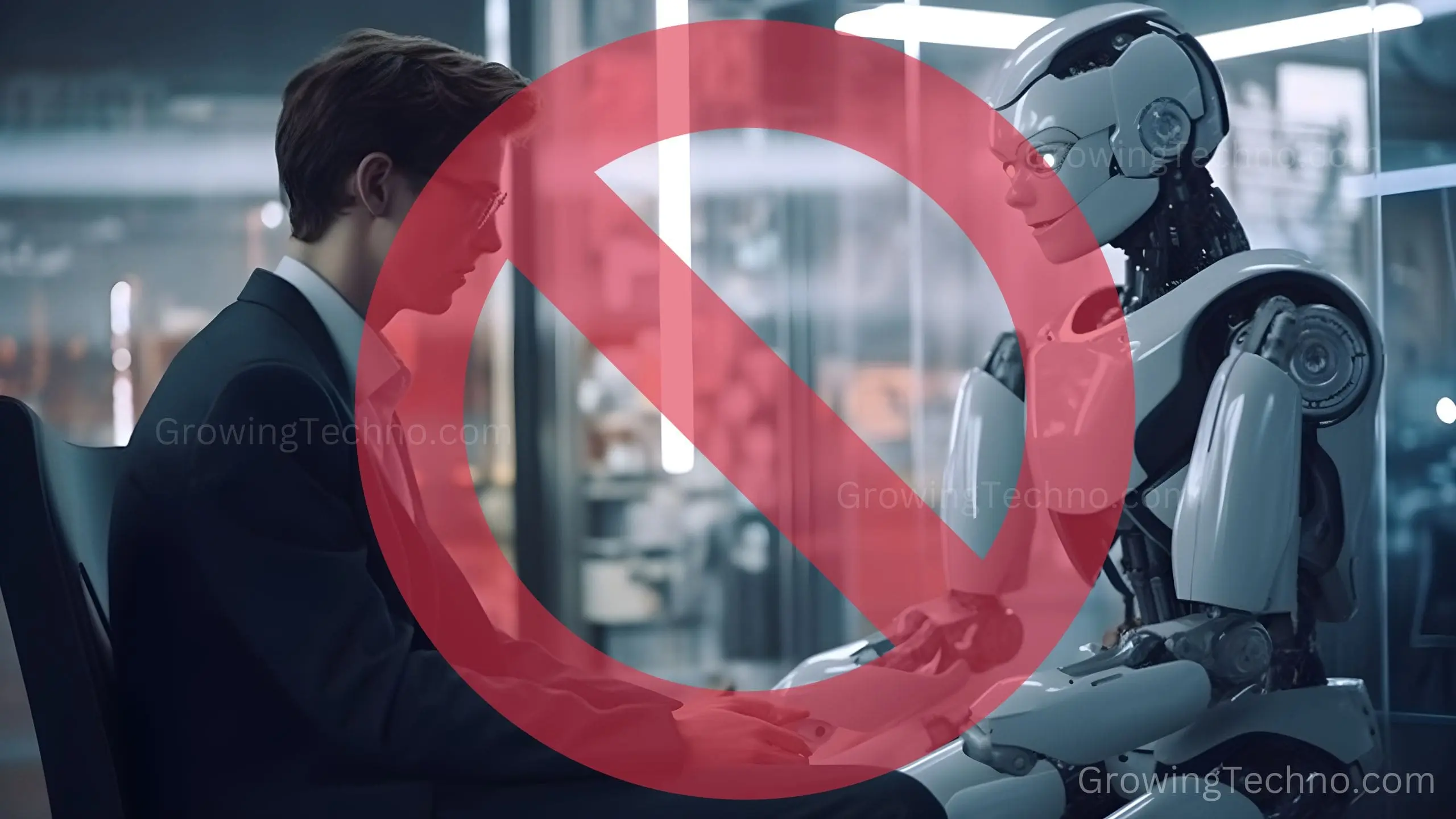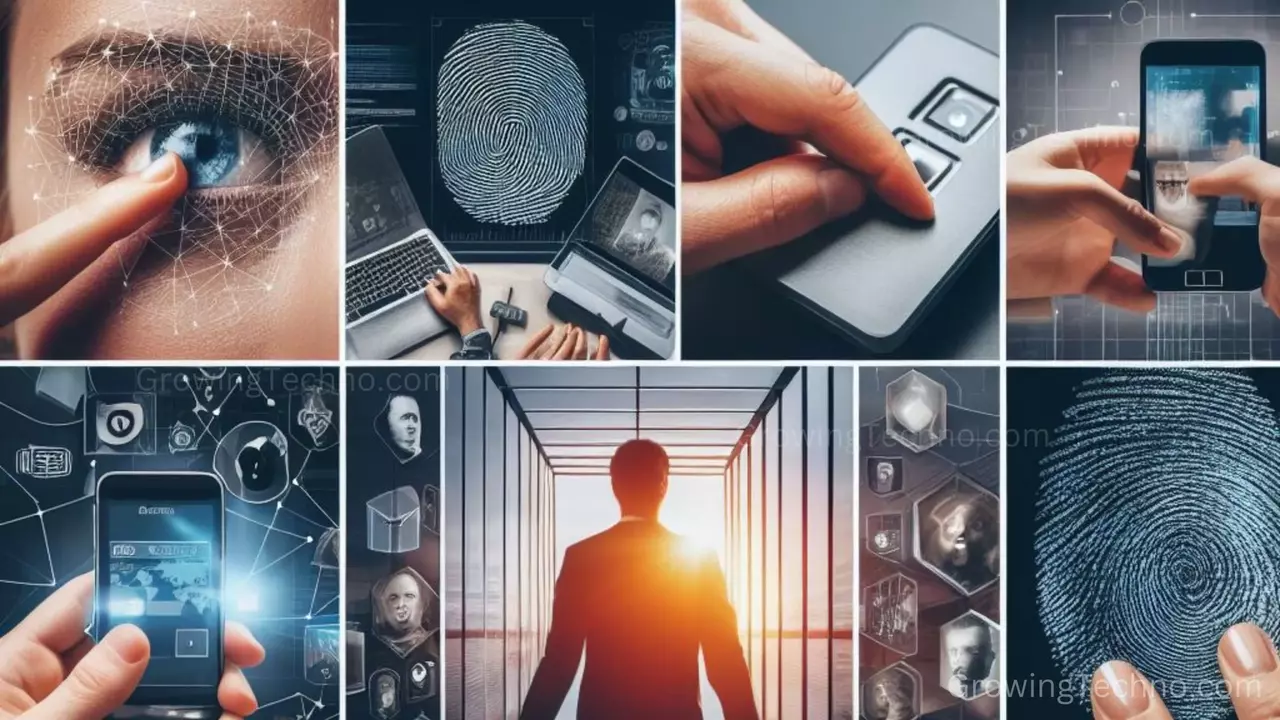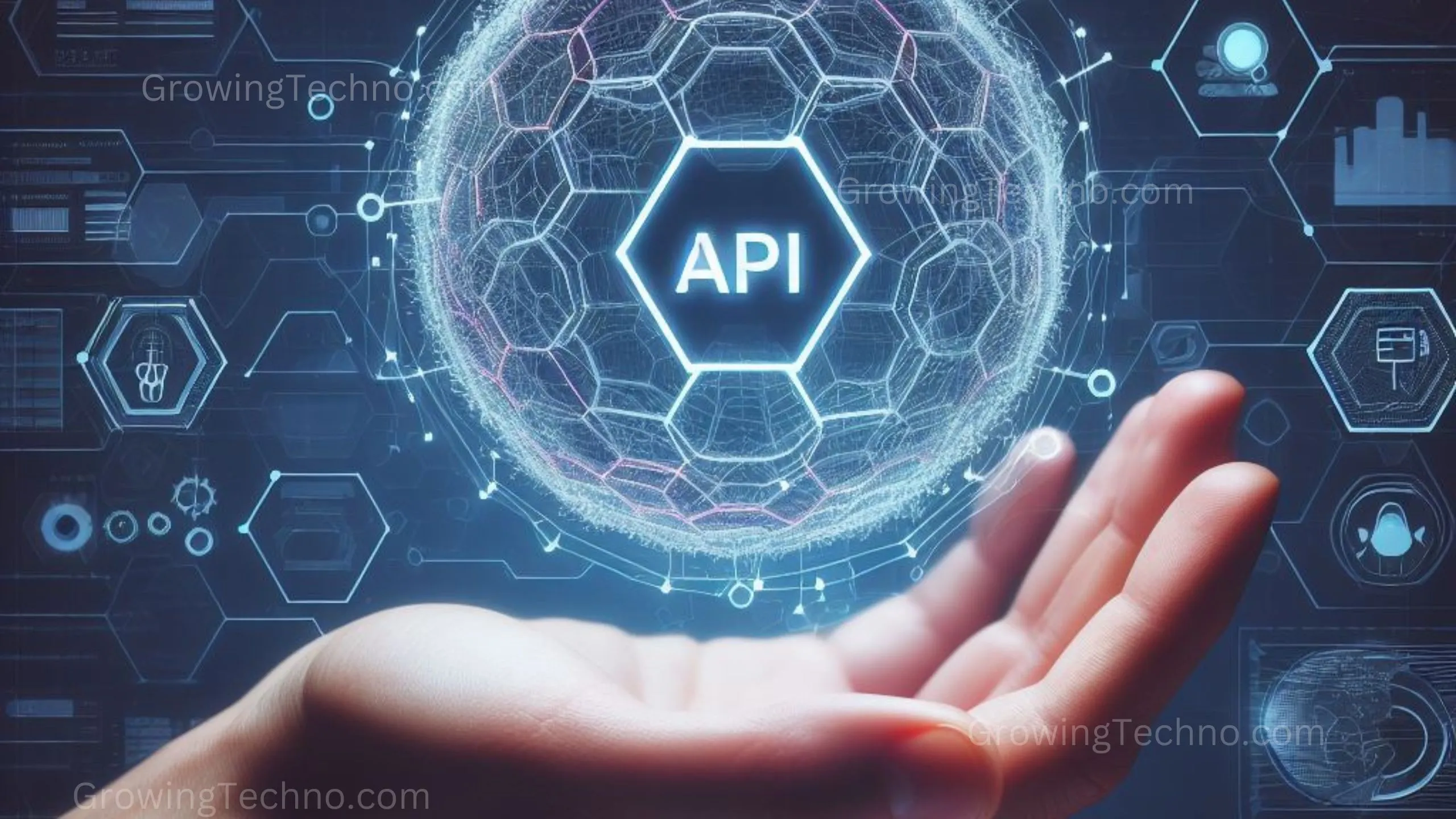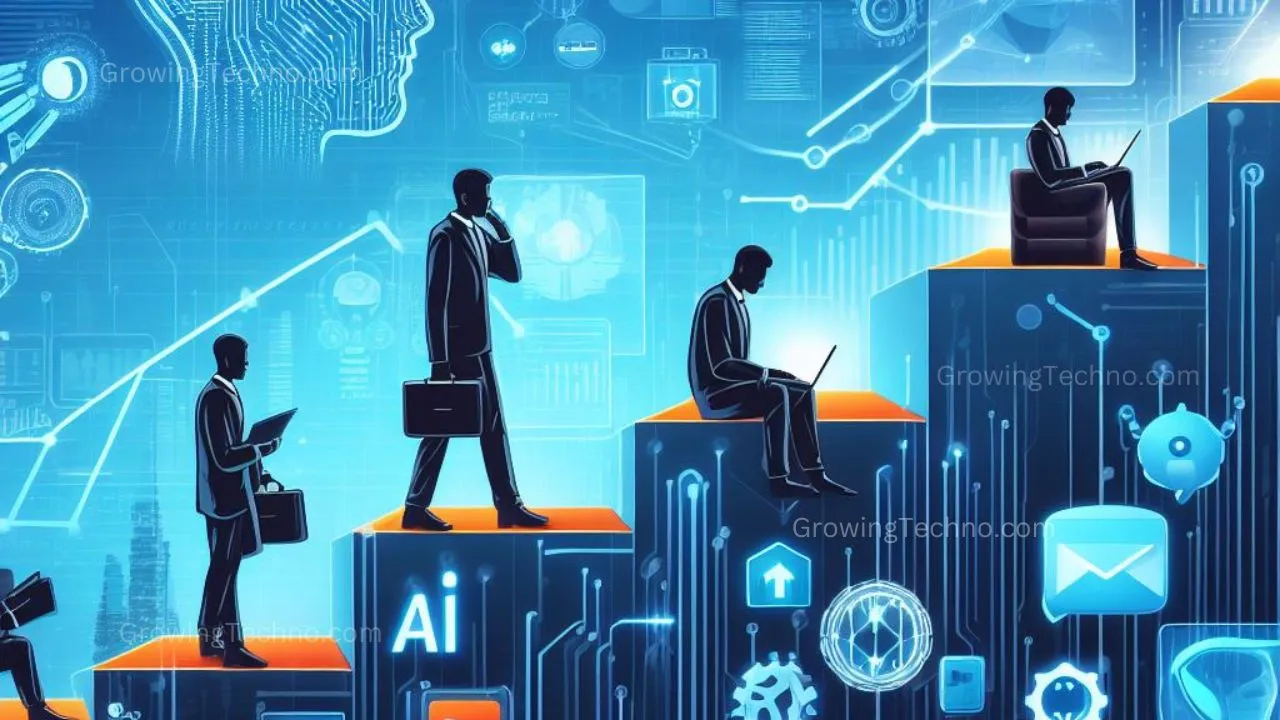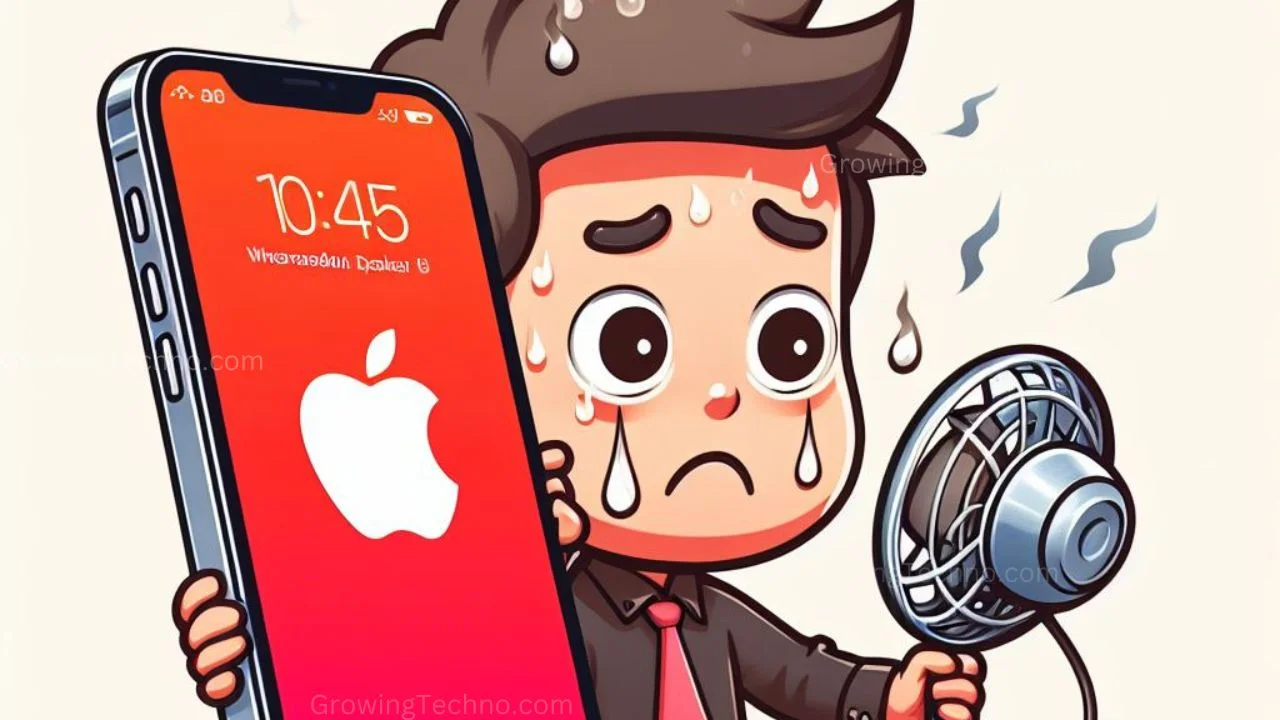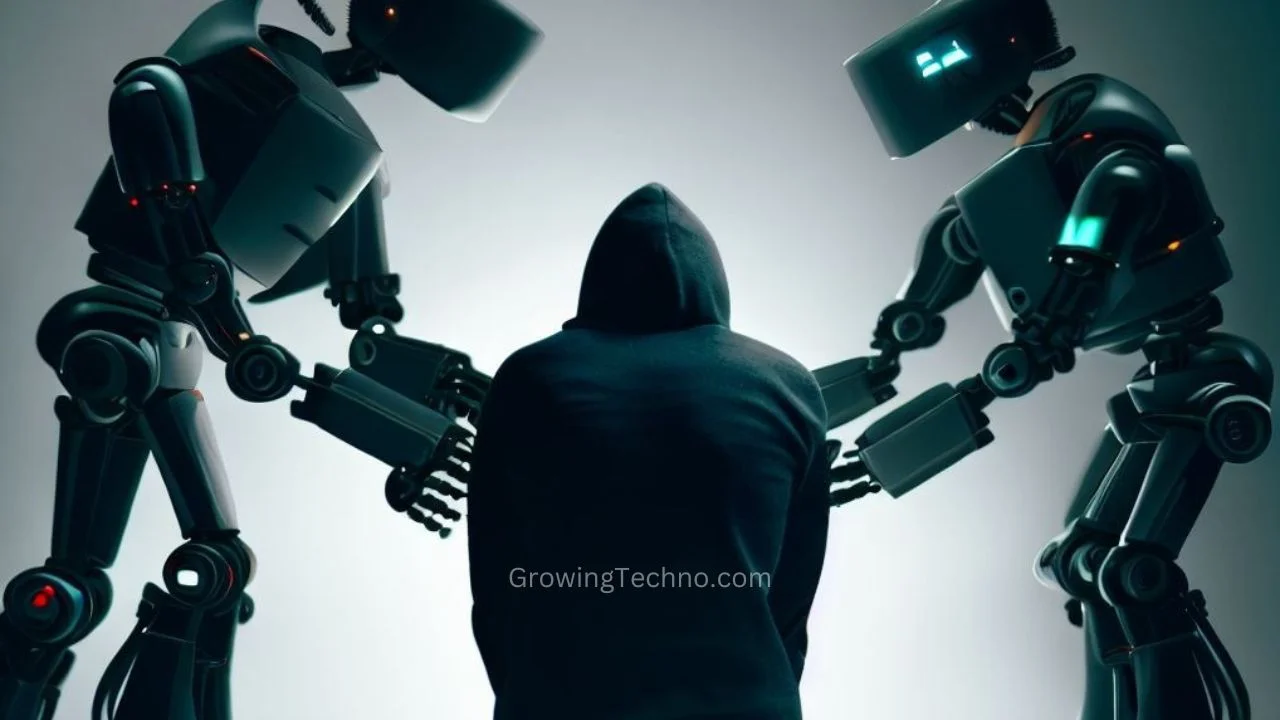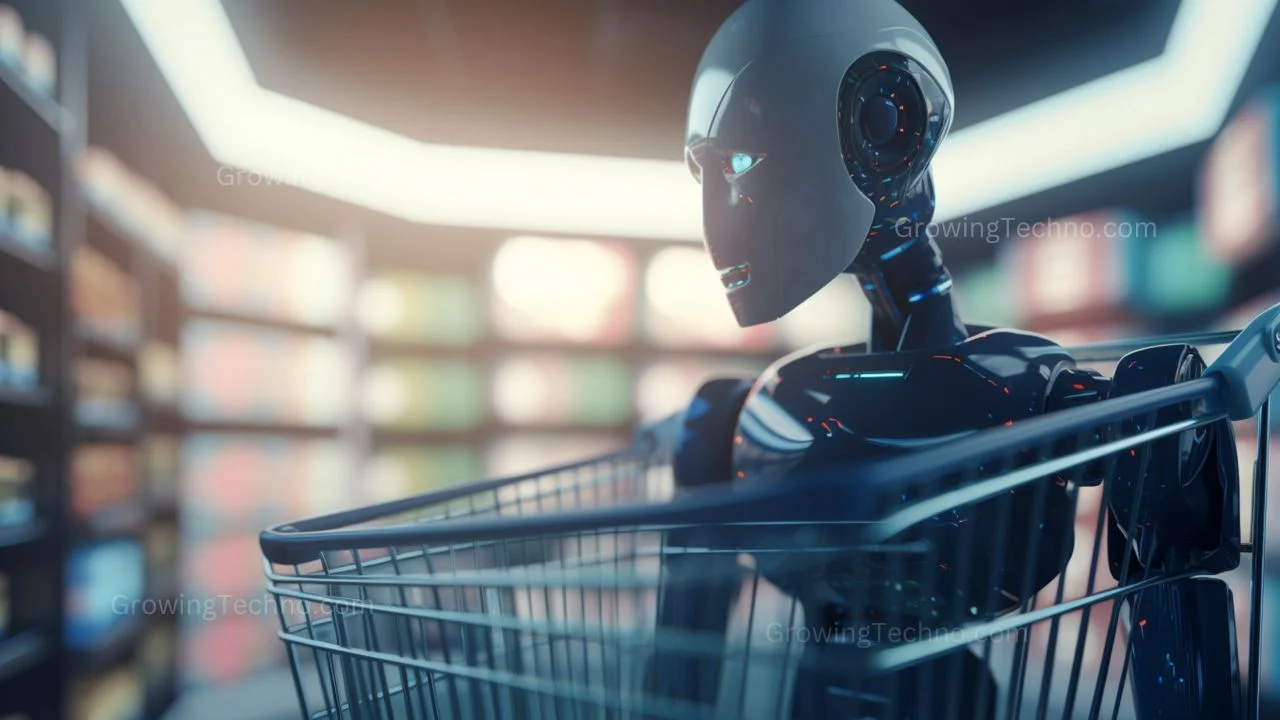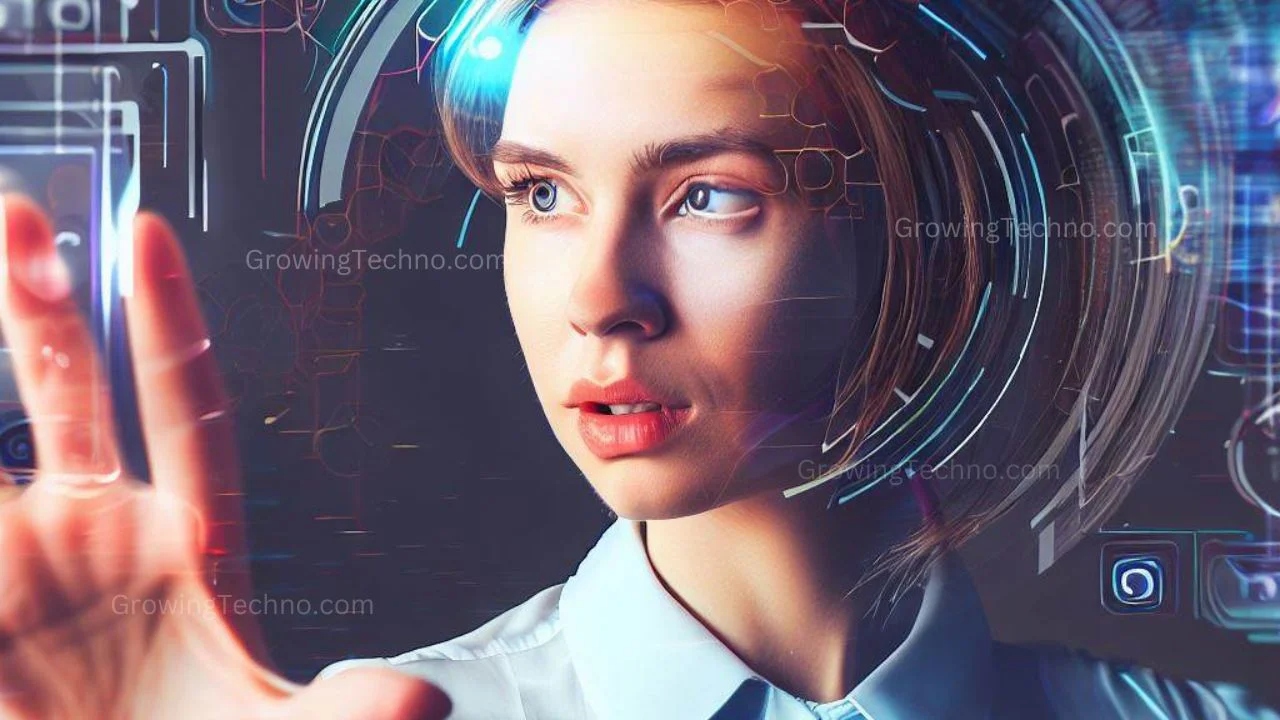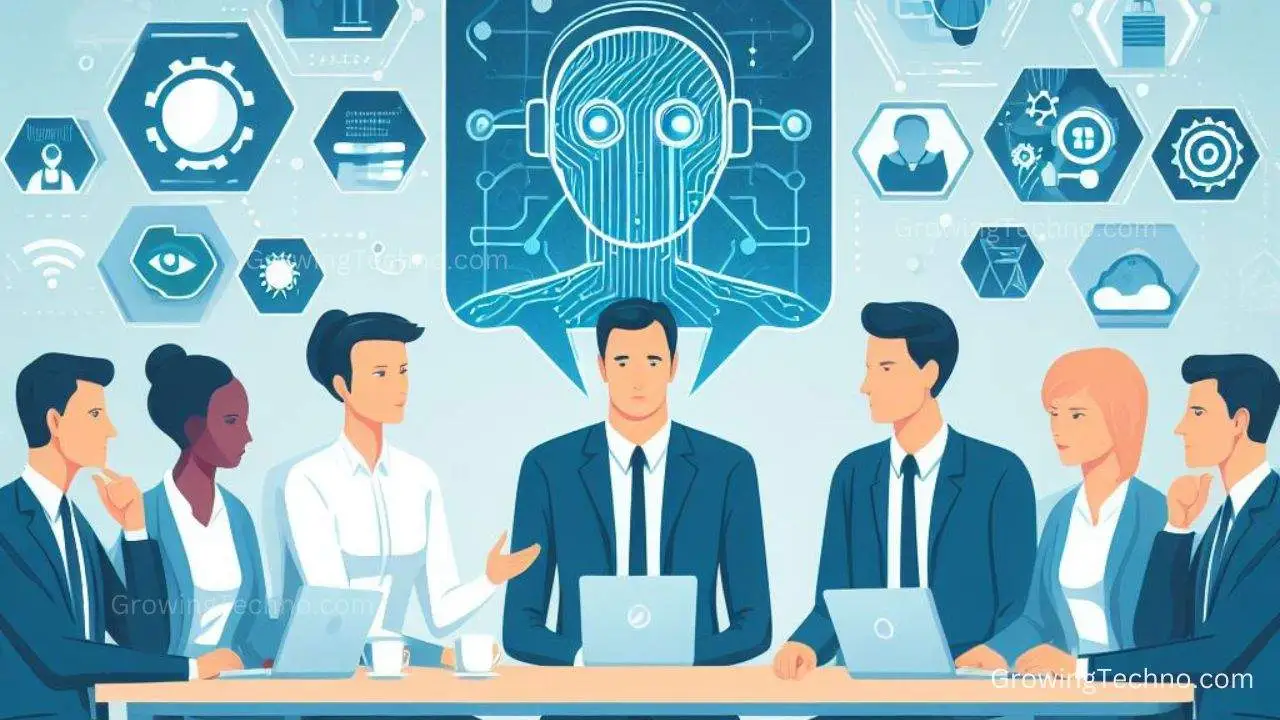
In a word, yes. Your HR department is on the brink of a transformative journey, and the destination is a place of enhanced speed, productivity, accuracy, and a dynamic role in achieving company goals. You don’t want to be stuck at your current level when the key to unlocking a more effective HR department is right at your fingertips in the form of Artificial Intelligence.
Artificial Intelligence has the potential to revolutionize HR, but only if you understand it and implement the necessary changes. As AI continues to evolve, it’s crucial to be ready to embrace the positive changes it brings. But what about the risks and disadvantages? Let’s explore what to expect.
Will AI Carry Risks or Disadvantages Too?
Change, even positive change, often comes with its own set of challenges. Here’s what you need to keep an eye on:
- Limited Personal Insight: While AI can help select the best candidates for a job, it may not grasp certain qualities that become evident during a personal interview.
- Technology Overwhelm: Inadequate training can lead to technology overload within your team, resulting in a situation where new programs are introduced, but old processes continue to be followed, wasting valuable resources.
- Employee Disconnection: Excessive reliance on AI for interactions with employees may leave them feeling disconnected.
While these risks are manageable through involvement and effective training, the biggest risk is not embracing AI in the first place. To remain relevant in an ever-evolving market, adopting modern technology is imperative, especially if you want to attract top talent.
After all, who doesn’t want to be an employer of choice for the best and brightest?
Will AI Cost You Your HR Position?
It’s a common concern that AI might replace human jobs, but the evidence suggests otherwise. Companies typically view AI and automation as opportunities to retrain employees for new tasks, often working in tandem with robots and advanced technology to improve overall productivity.
Moreover, the HR team will play a pivotal role in preparing companies to implement AI in various departments. After all, HR professionals are responsible for the overall development of employees. This means you now have the privilege of training your colleagues for the exciting journey of working alongside AI. Instead of losing relevance, there will be more work for you.
However, it’s essential to stay updated and adapt to the changing times. The good news is that you’ll reap numerous benefits from this shift.
The Benefits of AI for Your HR Department
AI’s effectiveness won’t happen overnight. It requires a learning phase, where machine learning systems understand your processes and preferences, making tasks more efficient and accurate.
If you’re seeking motivation to embrace this change, consider the benefits it offers.
Benefits for the Employee
Employees often lament the lack of time to complete their workload. AI systems are designed to tackle this issue head-on. For instance, AI can automate leave applications, taking into account factors like project timelines and coworker leave requests. General HR queries can also be addressed quickly through chatbots, eliminating the need to wait for a human response.
The most significant advantages are for potential and new employees. AI’s role in HR is closely tied to the recruitment process, bringing benefits such as:
- Unbiased Screening: AI can review resumes and conduct background checks without prejudice, ensuring equal opportunities for all candidates.
- Faster Feedback: AI can swiftly analyze vast amounts of data to identify the best candidates, providing quick feedback to applicants.
- Standardized Training: AI can provide standardized training for new employees, ensuring they receive high-quality instruction.
These benefits contribute to a more productive and satisfied workforce, ultimately benefiting the entire company.
Benefits for the HR Practitioner and Team
Artificial Intelligence offers substantial benefits within the HR department itself. Chatbots can handle routine inquiries, freeing up valuable time for HR team members. Automation can also streamline repetitive tasks like tracking work hours.
The most exciting aspect, however, is the impact on the recruitment process. With the right software, such as Mitrefinch, HR professionals can manage the entire process efficiently. AI can identify the most promising candidates and even play a role in determining which skills, personalities, and positions are most needed in the company based on performance data.
This ability to analyze data quickly and accurately far exceeds what any human could accomplish. By advertising positions more strategically, your company can become more effective in the long run.
Why involve HR departments in these changes? It’s time for HR to play a more active role in various aspects of the business.
Benefits for the Employer/Business Owner
Artificial Intelligence not only makes employees more productive but also benefits the business owner. With AI handling routine HR tasks, the HR team has more time and energy to contribute to the company’s strategic goals.
Considering that HR departments work with the most critical asset – the workforce – this is a crucial development. It’s time to prepare your team for this exciting journey. Embrace AI, and you’ll unlock a world of possibilities for your HR department and your entire organization.
Enhancing Employee Productivity
One of the most significant benefits of AI in HR is its potential to enhance employee productivity. In today’s fast-paced business environment, employees often find themselves juggling multiple tasks, leading to stress and reduced efficiency. AI can alleviate these challenges by streamlining various HR processes.
For example, leave applications can be automated through AI. Instead of arranging a meeting with the HR department to request time off, employees can simply input their request, and AI can analyze the situation. It can consider factors like project timelines and the availability of other team members to determine if the proposed leave is optimal. This not only saves time but also reduces the back-and-forth communication typically involved in leave requests.
Artificial Intelligence can also handle general HR inquiries quickly and efficiently. Instead of waiting for an HR employee to respond, employees can interact with a chatbot. Unlike humans, chatbots don’t engage in small talk, which can be time-consuming. This results in faster responses and more efficient problem-solving.
Revolutionizing the Recruitment Process
The future of AI in HR is closely linked to the recruitment process. Many aspects of recruitment can be automated, which benefits both employers and job applicants.
- Unbiased Screening: AI can review resumes and conduct background checks without any inherent bias. It doesn’t discriminate based on race, gender, or personality types. This leads to a fairer and more inclusive recruitment process, where everyone has an equal chance.
- Swift Candidate Selection: AI can quickly process vast amounts of data to identify the most suitable candidates for a position. This means that job applicants receive feedback faster, reducing the waiting period between applying and hearing back from the company.
- Standardized Training: When it comes to training for new positions, AI can offer standardized programs. This ensures that all new employees receive consistent and high-quality training. This is particularly valuable when a mentor might be pressed for time or have varying teaching approaches.
By improving the recruitment process, AI contributes to building a more productive and contented team. Happy employees are more likely to contribute positively to the company’s overall success. Investing in AI-driven recruitment processes is an investment in your company’s future.
Streamlining HR Tasks
AI doesn’t just benefit employees and job applicants; it also streamlines the work of HR practitioners and teams. Chatbots, for instance, can handle general inquiries, freeing up significant time for HR team members. This not only reduces the workload but also allows HR professionals to focus on more strategic and complex tasks.
Automation plays a pivotal role in HR, particularly when it comes to managing repetitive tasks like tracking work hours. This leads to more accuracy in data management and less time spent on administrative tasks.
However, the most exciting aspect of AI’s impact on HR is its role in managing the recruitment process. Software platforms like Mitrefinch can assist HR professionals in overseeing the entire recruitment process, from candidate selection to onboarding.
AI doesn’t just start working when you’re interviewing candidates. Its involvement begins much earlier in the process. AI can analyze data to identify the skills, personalities, and positions that are most needed within the company, based on performance appraisals and other data sources. Instead of HR teams sifting through mountains of data, AI can perform this task rapidly and with exceptional accuracy. The question arises: Can any human handle the volume of data that AI can process?
Knowing what types of positions your company needs to advertise for is crucial for long-term effectiveness. AI provides the insights required to make these decisions, ultimately empowering your company to work more efficiently.
Empowering HR to Play a Broader Role
The push to get HR departments more involved in the business is not a coincidence. It’s a strategic move because it’s time for HR to play a more active role in various aspects of the business. This is particularly relevant in today’s rapidly changing business landscape.
Artificial Intelligence is a catalyst for this shift. By freeing up time and resources, AI empowers HR professionals to contribute more meaningfully to their organization’s success. This goes beyond traditional HR responsibilities and involves actively participating in strategic planning and decision-making processes.
The role of HR is evolving from a purely administrative function to a strategic partner in the business. With AI handling routine HR tasks, HR professionals can focus on employee development, talent management, and aligning HR strategies with the company’s overall objectives.
This shift in HR’s role is vital because HR departments work with the most important asset of all: people. By ensuring that the workforce is engaged, motivated, and well-prepared, HR plays a crucial part in driving the company toward its goals. With the help of AI, HR can become an even more powerful force for positive change.
Benefits for the Employer/Business Owner
While AI certainly makes employees more productive, it also offers significant benefits to business owners. With AI handling routine HR tasks, HR teams have more time and energy to contribute to the company’s strategic goals. This is especially critical because HR departments deal with the most vital company asset: the workforce.
The success of any business is fundamentally tied to its employees. A highly motivated, well-trained, and engaged workforce can drive an organization toward its goals. Business owners understand this, and that’s why they value HR departments. By introducing AI into HR processes, business owners can maximize the potential of their HR teams.
HR professionals can focus on shaping and implementing strategies that enhance employee performance and well-being. They can align HR practices with business goals, contributing to overall company success.
In essence, AI provides business owners with a valuable tool to optimize their HR departments, ensuring that they are more efficient, strategic, and focused on the most crucial asset of all: the people who make the business run.
Preparing Your Team for the AI Revolution
The transition to AI in HR is not just about implementing new technology; it’s about preparing your team for the exciting journey ahead. Embracing AI means that HR professionals must adapt to new ways of working and acquire new skills.
Here are some essential steps to prepare your team for the AI revolution:
- Training: Invest in comprehensive training programs to ensure that your team has the skills and knowledge needed to work effectively with AI. This includes understanding how to use AI tools, interpret AI-generated data, and make data-driven decisions.
- Change Management: Implement effective change management strategies to help your team navigate the transition to AI. Ensure that they understand the benefits of AI and how it will enhance their roles, rather than replace them.
- Data Literacy: Encourage your team to develop data literacy skills. AI relies on data, and HR professionals must be proficient in data analysis to make the most of AI’s capabilities.
- Communication: Foster open and transparent communication within your HR team. Encourage team members to share their experiences, challenges, and successes in working with AI. This can help create a culture of learning and continuous improvement.
- Collaboration: Promote collaboration within your HR department. AI works best when it complements human skills. Encourage your team to work together with AI tools to achieve optimal results.
- Strategic Thinking: Encourage your team to think strategically about how AI can help achieve the company’s goals. This involves identifying areas where AI can make the most significant impact and devising strategies to leverage AI effectively.
- Continuous Learning: Emphasize the importance of continuous learning. AI is an evolving field, and your team must stay updated on the latest developments and best practices in AI in HR.
By taking these steps, you can prepare your HR team for the AI revolution and ensure that they are well-equipped to harness the full potential of AI in enhancing HR processes and driving the company’s success.
Conclusion
The future of HR is undoubtedly intertwined with AI. As AI continues to evolve and transform various industries, HR professionals must embrace the changes it brings. AI has the potential to revolutionize HR by enhancing employee productivity, streamlining HR tasks, and empowering HR professionals to play a more significant role in their organizations.
While there are risks and challenges associated with AI, the benefits far outweigh them. AI can lead to fairer and more efficient recruitment processes, resulting in a more productive and satisfied workforce. Business owners can also benefit from AI by optimizing their HR departments, ensuring that they are more strategic and focused on their most vital asset: their employees.
To make the most of AI in HR, it’s essential to prepare your team for this exciting journey. Investing in training, change management, data literacy, communication, collaboration, strategic thinking, and continuous learning will enable your HR professionals to harness the full potential of AI and drive your company toward its goals.
The future of HR is bright with AI, and the time to embrace this transformative technology is now. It’s not about replacing human skills; it’s about augmenting them, and in doing so, creating a more efficient, productive, and successful HR department.


